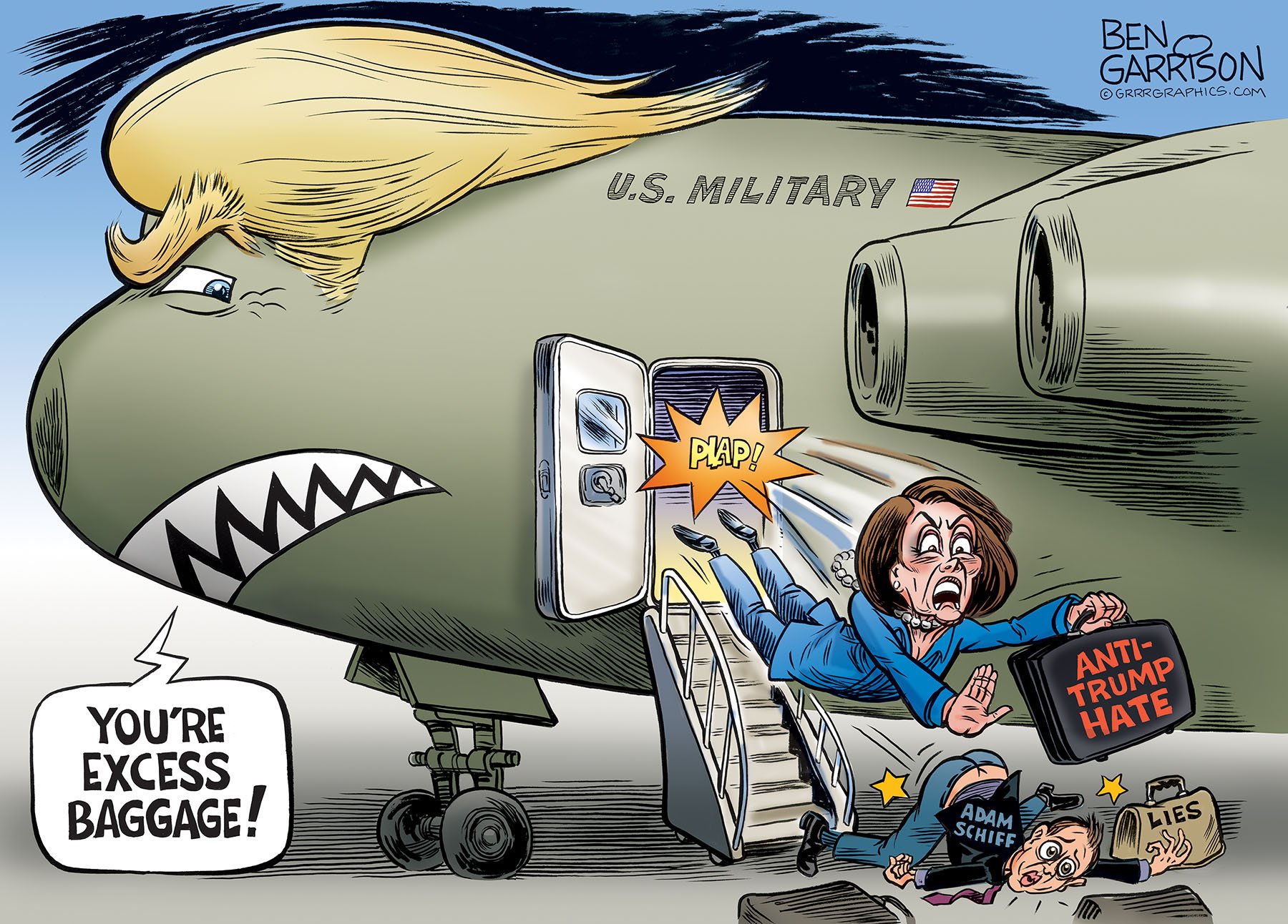Congress Can’t Make War

Article by Raoul Lowery Contreras in "The American Thinker":
House Speaker Nancy Pelosi
misinterprets congressional responsibilities about war and peace. In
challenging President Donald Trump’s bold order to kill the world’s
number one terrorist, Iran’s Qassem Soleimani, Speaker Pelosi misfires on Congress’ foreign policy and military responsibilities.
Congress is mandated in Article 1, Section 8 of
the Constitution “To declare war...make rules concerning captures on
land and water.” It is authorized “to raise and support armies…” It also
is authorized “to provide and maintain a Navy” and “to make rules for
the government and regulation of the land and naval forces; it can
“provide for calling forth the militia to execute the laws of the Union, suppress insurrections and repel invasions.” Lastly, Article 1, Section 8 authorizes
Congress “to provide for organizing, arming and disciplining the
militia (National Guard) and for governing such part of them as may be
employed in the service of the United States…”
That’s
a lot. Yes, Congress has deep and exclusive mandates on military
organization, funding and some management of U.S. military forces. What
it does not have is the ability to use military forces. Only the
President can use them; he does so as Commander in Chief. He (or she)
does not generally need Congressional permission to use the military. In
fact, Congress has prohibited some uses; e.g. laws that prohibit the use of the federal military to enforce civilian laws. It also prohibited sending draftees outside the Western Hemisphere in 1940.
Article II of the Constitution, Section 2
clearly states “The President shall be the Commander in Chief of the
Army and the Navy of the United States, and of the militia of the
several states, when called into the actual service of the United
States…” Section 3 of Article II gives the President the authority to “commission all the (military) officers of the United States.”
The
Senate has the authority to “advise and consent” to some appointments
such as admirals and generals in Article II, Section 2; the President
“shall have the power, by and with the consent of the Senate…(to)
appoint...all other officers of the United States.”
As
outlined here, nowhere in the Constitution is permission, or mandate
that states Congress can make war, or order a Seal Team into a foreign
country to rescue hostages, assassinate terrorists, kidnap individuals
or destroy military targets. The Congress can buy and fuel killing
machines like drones and pay people to control them in installations
Congress pays for, but it can’t order the drone operator to kill anyone.
Nor are there any words that allow Congress to appoint officers of the
American military. Only the President can, albeit some appointments must
be approved by the U.S. Senate.
Only
the President can nominate military officers, even if his name is
Trump. Also, only the President can order troops, planes, missiles,
drones and aircraft carriers into action, any action. The same is true
of foreign policy, an essential factor in the use of the military.
On
foreign policy, Article II, Section 2 the President is charged with the
exclusive power “to make treaties, provided two thirds of the Senate
present concur...and by and with the advice and consent of the
Senate...shall appoint ambassadors, other public ministers and consuls…”
In Article I, Section 8,
Congress is mandated “to regulate commerce with foreign nations and
among the several states…” but is not authorized to regulate anything
but “commerce” with foreign nations. Thus, on trade with foreign
nations, for example, Congress can apply tariffs, order inspection of
foreign goods and allowance of such inspected goods and even quantities
of foreign goods but it cannot negotiate a treaty allowing such goods
into the U.S.
Only
the President can negotiate a treaty but if the treaty allows for
quantities, quality, etc. such as the original North American Free Trade
Agreement (NAFTA) with Mexico and Canada, or its successor NAFTA 2 AKA
USMCA, Congress must vote for passage or rejection of the agreement on
an up or down vote because it regulates commerce. Congress can advise
the President to add or deduct provisions of such an agreement but it
can’t negotiate it.
The
question posed by Speaker Pelosi that Congress needs to be consulted by
President Trump for action like the killing of Iranian terrorist Qassem
Soleimani is invalid. Congress-persons have their
constitutionally-defined jobs and the President has his.
The
question is not new. President Theodore Roosevelt in 1907 sent the
Great White Fleet of 16 U.S. Navy battleships on a worldwide show of
U.S. naval strength against the public wishes of some Congressmen.
In one story, Roosevelt told Congress he already had the money and for them “to try and get it back.” In another, “Congress
had appropriated only half the funds necessary to finance the cruise.
Roosevelt sent the ships anyway, saying that if Congress wanted the Navy
back, it could provide the rest of the money.”
In this Iran-killing case, Speaker of the House of Representatives Nancy Pelosi should be seen, not heard.




Post a Comment